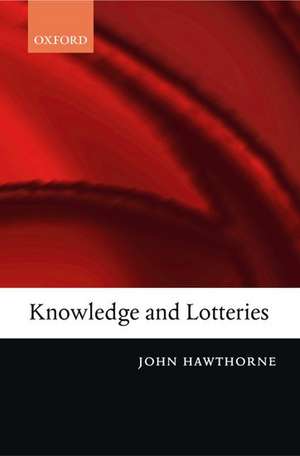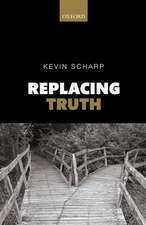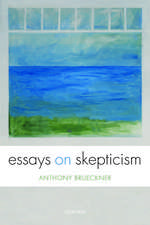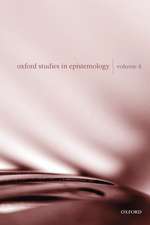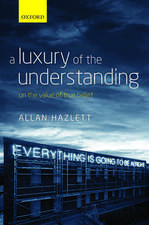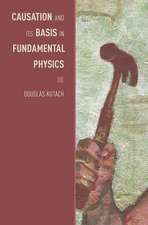Knowledge and Lotteries
Autor John Hawthorneen Limba Engleză Hardback – 19 noi 2003
| Toate formatele și edițiile | Preț | Express |
|---|---|---|
| Paperback (1) | 335.51 lei 31-37 zile | |
| OUP OXFORD – 24 noi 2005 | 335.51 lei 31-37 zile | |
| Hardback (1) | 332.01 lei 31-37 zile | |
| OUP OXFORD – 19 noi 2003 | 332.01 lei 31-37 zile |
Preț: 332.01 lei
Preț vechi: 398.15 lei
-17% Nou
Puncte Express: 498
Preț estimativ în valută:
63.59€ • 65.51$ • 53.27£
63.59€ • 65.51$ • 53.27£
Carte tipărită la comandă
Livrare economică 11-17 februarie
Preluare comenzi: 021 569.72.76
Specificații
ISBN-13: 9780199269556
ISBN-10: 0199269556
Pagini: 216
Dimensiuni: 140 x 210 x 20 mm
Greutate: 0.35 kg
Editura: OUP OXFORD
Colecția OUP Oxford
Locul publicării:Oxford, United Kingdom
ISBN-10: 0199269556
Pagini: 216
Dimensiuni: 140 x 210 x 20 mm
Greutate: 0.35 kg
Editura: OUP OXFORD
Colecția OUP Oxford
Locul publicării:Oxford, United Kingdom
Recenzii
a wonderfully clear and well-argued book with a refreshing non-dogmatic air to it, that I am sure will function as a central reference point for these debates in the time to come.
This monograph adds significantly to the growing literature on the skeptical threat posed by lotteries. But it is also an important contribution to epistemology in general, and especially the intersection between epistemology and the philosophy of language. The book is also a good read. It is filled with engaging arguments, for and against various positions, many of which spill over into the footnotes, where they undergo promising developments.
This is a must-read, indeed a must-study, for everyone interested in the concept of knowledge.
This monograph adds significantly to the growing literature on the skeptical threat posed by lotteries. But it is also an important contribution to epistemology in general, and especially the intersection between epistemology and the philosophy of language. The book is also a good read. It is filled with engaging arguments, for and against various positions, many of which spill over into the footnotes, where they undergo promising developments.
This is a must-read, indeed a must-study, for everyone interested in the concept of knowledge.
